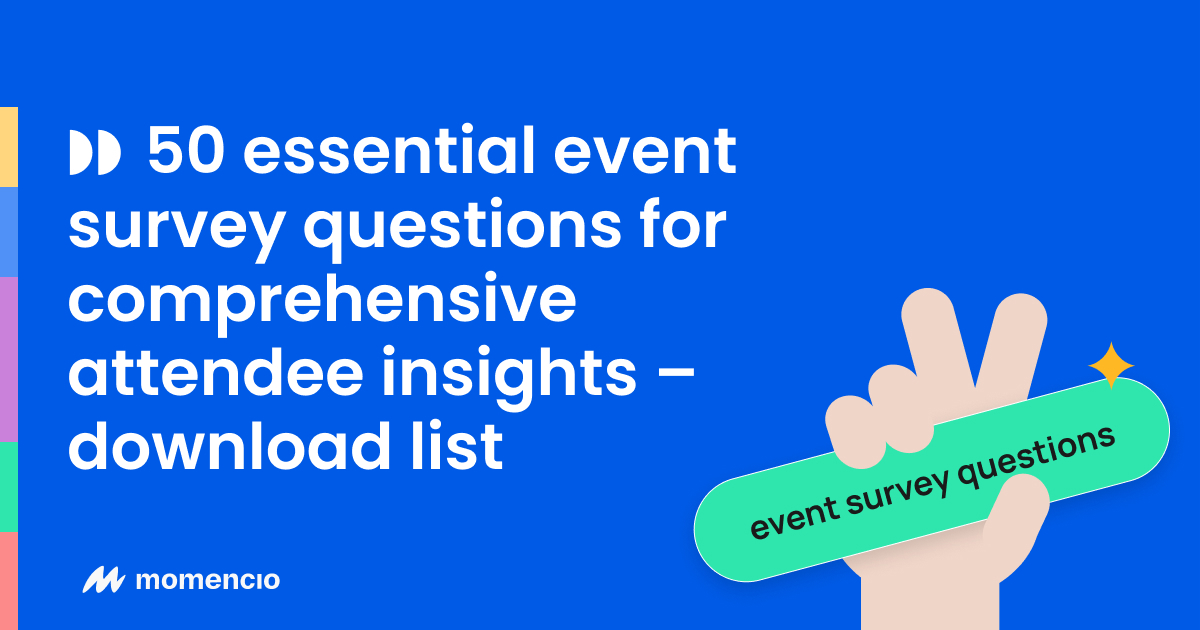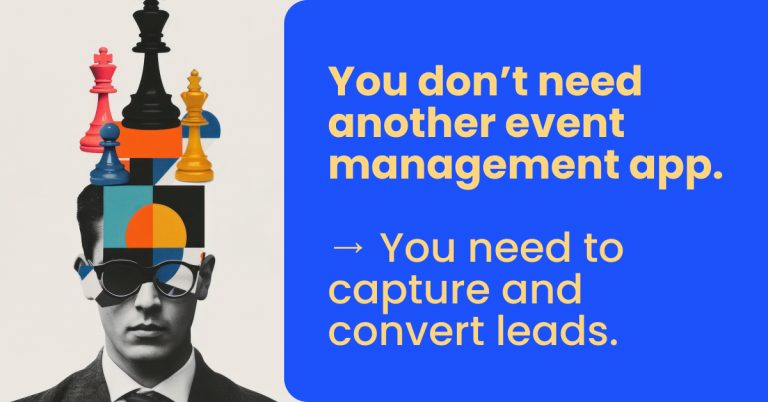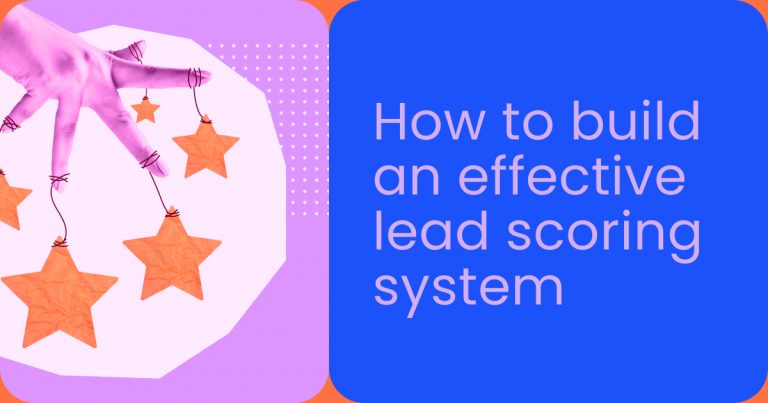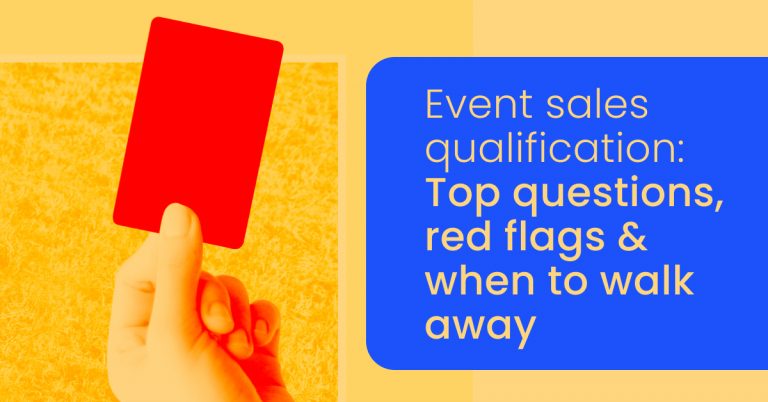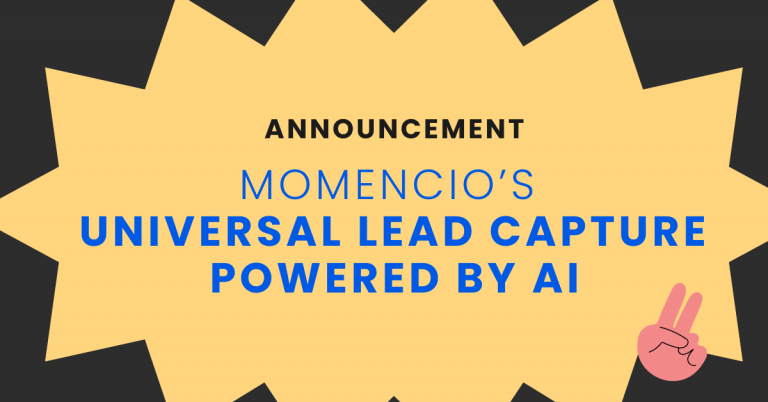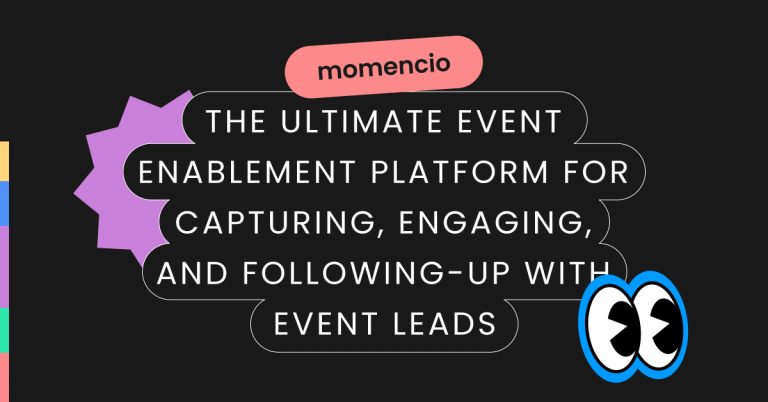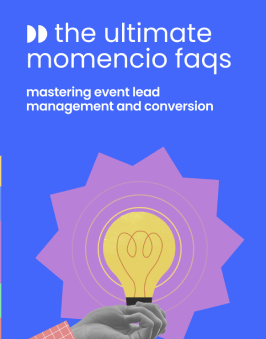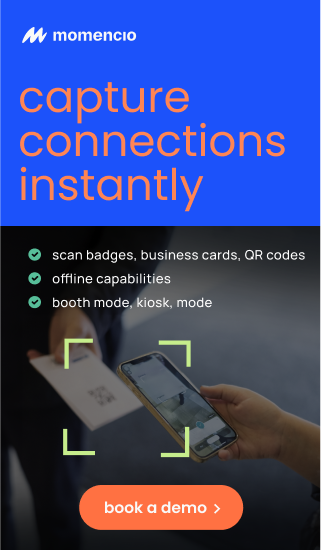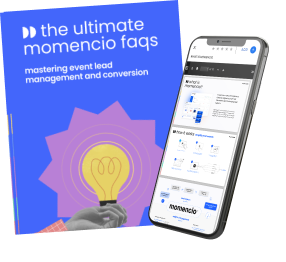Event organizers continually strive to enhance attendee experiences, making feedback an indispensable part of the event planning and improvement process. But what questions should you include in your event survey to gather the most valuable insights from attendees? This is not just a matter of curiosity; it’s a strategic necessity. 85% of event organizers rely on attendee feedback to measure event success, yet only 55% feel confident they’re asking the right questions. This gap highlights the crucial need for a comprehensive set of event survey questions that can accurately gauge attendee experiences, expectations, and engagement levels.
Our guide, “50 Essential Event Survey Questions for Comprehensive Attendee Insights,” is meticulously crafted to bridge this gap, providing event professionals with a robust toolkit for feedback collection. By including a mix of quantitative and qualitative questions, ranging from pre-event expectations to post-event satisfaction and everything in between, this guide ensures that organizers can capture the nuanced feedback necessary for meaningful improvements. Furthermore, timing the survey correctly is paramount – too soon, and attendees might have yet to process their experience fully; too late, and memories may have faded. Our checklist and guided questionnaire, enriched with keyword variants like Feedback Questions, Pre-Event Surveys, and Post-Event Surveys, and supported by semantic content on attendee experiences, will empower organizers to make informed decisions that elevate the quality and impact of their events.
TL;DR: Gain valuable insights from event attendees by asking the right survey questions. This guide outlines essential post-event survey questions that help organizers gather feedback, understand attendee needs, and make data-driven improvements for future events.
The importance of event surveys
80% of event professionals measure the event success based on event attendance, attendee engagement, and attendee experience. Event surveys stand as a critical tool for any event planner or marketer aiming to refine and elevate the event experience. These surveys, encompassing pre-event, during-event, and post-event phases, act as a direct line of communication between attendees and organizers, offering insights that are pivotal for both immediate adjustments and long-term planning. Why are they so crucial?
- Direct feedback for improvement: They provide unfiltered feedback from those who matter most – your attendees. This feedback is invaluable for understanding what worked, what didn’t, and why.
- Data-driven decision making: Surveys transform subjective experiences into quantifiable data, enabling organizers to make informed decisions based on attendee preferences and feedback.
- Increased attendee satisfaction: By asking for feedback, you demonstrate to attendees that their opinions are valued, which can enhance their overall satisfaction and loyalty to your event or brand.
- Benchmarking for future events: Event surveys help establish benchmarks for various aspects of your event, such as attendee engagement and content quality. These benchmarks are critical for measuring the success of future events and identifying trends over time.
Pre-event survey questions
Understanding attendee expectations
The foundation of a successful event is laid well before the first guest arrives. Pre-event surveys are a strategic tool to gauge the expectations and preferences of your attendees, ensuring that the event is tailored to meet their needs. Consider including questions like:
- “What are your main objectives for attending the event?” – Identifies the primary interests of attendees, allowing for targeted content.
- “Which topics are you most interested in?” – Helps curate sessions and discussions that resonate with the audience.
- “Do you have any specific dietary requirements or accessibility needs?” – Ensures that all logistical arrangements cater to the needs of every attendee.
- “How did you hear about this event?” – Provides insight into effective marketing channels.
Tailoring content and logistics
Gathering pre-event insights isn’t just about understanding expectations; it’s about acting on them to tailor your event’s content and logistics. This customization can significantly enhance the attendee experience and engagement levels. Critical questions in this area might include:
- “Which format do you prefer for learning and engagement? (e.g., workshops, panels, networking sessions).” – Guides the structuring of the event schedule and formats that are most appealing to the audience.
- “What previous experiences have you had with similar events, and what would you like to see done differently?” – Offers a chance to learn from the shortcomings or successes of other events.
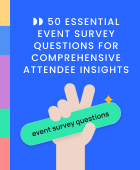
Understanding attendee expectations
- What motivated you to register for this event?
- What are your primary goals for attending?
- Which sessions/topics are you most interested in?
- Do you have any specific dietary or accessibility needs?
Tailoring content and logistics
- Which event format (workshops, panels, etc.) do you prefer?
- What is your preferred method of communication regarding event updates?
- How familiar are you with the event platform (for virtual events)?
- Are there any speakers or topics you’re particularly looking forward to?
Pre-Event surveys: setting expectations
- What are you hoping to take away from this event?
- Which industries do you hope are represented at the event?
- Do you plan on using the networking opportunities provided? What are your networking goals?
Utilizing the insights gained from these pre-event survey questions empowers event organizers not just to meet but exceed attendees’ expectations. Tailoring content and logistics based on direct feedback ensures that the event is relevant, engaging, and memorable for all participants.
During-event survey questions
Assessing real-time engagement
Capturing attendee feedback during the event offers a unique opportunity to gauge real-time engagement and satisfaction, enabling immediate adjustments to enhance the experience. Key during-event survey questions include:
- “How would you rate your overall experience so far?” – A quick pulse check on general attendee sentiment.
- “Which session has been the most engaging for you today?” – Identifies standout content or speakers, providing insight into what’s resonating with the audience.
- “Have you encountered any issues or challenges during the event?” – Allows for the quick resolution of any logistical or technical problems, improving the ongoing event experience.
Live polling during sessions can also serve as an engaging way to gather instant feedback, keep the audience involved, and dynamically adjust content based on responses.
Adjusting event dynamics
The agility to adjust event dynamics based on real-time feedback can significantly impact the overall success of your event. This might involve:
- Shifting session formats: If feedback indicates a preference for more interactive discussions over lectures, consider adapting upcoming sessions accordingly.
- Addressing technical issues: Immediate feedback on any technical glitches allows for quick fixes, ensuring smooth proceedings.
- Enhancing networking opportunities: If attendees express a desire for more networking time, adjustments can be made to the schedule to accommodate this.
Assessing real-time engagement
- How would you rate your overall experience so far?
- Which sessions have met or exceeded your expectations?
- Are there any topics you wish were covered in more detail?
- How effective are the networking opportunities?
Adjusting event dynamics
- Have you experienced any technical issues?
- Is there anything we can do right now to improve your experience?
- How satisfied are you with the event logistics (venue, food, etc.)?
Post-event survey questions
Evaluating overall satisfaction
The post-event survey is a comprehensive tool for evaluating attendee satisfaction, understanding the event’s impact, and identifying areas for improvement. Essential questions include:
- “Overall, how satisfied were you with the event?” – Provides a general gauge of success from the attendee’s perspective.
- “What was the most valuable aspect of the event for you?” – Highlights the elements that contributed most significantly to attendee satisfaction.
- “How likely are you to attend future events hosted by us?” – An indicator of the event’s success in fostering loyalty and ongoing interest.
Gathering specific feedback on sessions and speakers
Detailed feedback on sessions and speakers is crucial for recognizing what worked well and what didn’t. This feedback informs future event planning, speaker selection, and content curation. Include questions like:
- “Please rate the relevance of the session topics to your professional interests.” – Ensures the content’s alignment with attendee expectations.
- “How would you rate the speakers’ effectiveness in delivering their presentations?” – Offers insight into speaker performance and audience engagement.
- “What topics or speakers would you like to see at future events?” – Direct input for planning more relevant and engaging future events.
Evaluating overall satisfaction
- Overall, how satisfied were you with the event?
- What was the highlight of the event for you?
- How likely are you to attend our future events?
- How likely are you to recommend this event to a colleague or friend?
Gathering specific feedback on Sessions and speakers
- Which sessions did you find most valuable and why?
- How would you rate the quality of the speakers/presenters?
- Were there any sessions that did not meet your expectations? Please explain.
- What topics would you like to see at future events?
By strategically incorporating these during-event and post-event survey questions, organizers can not only assess immediate engagement and satisfaction levels but also gather actionable insights for continuous improvement. This approach ensures that each event is an evolution, better tailored, and more engaging than the last, ultimately leading to higher satisfaction rates and deeper attendee engagement.
Live polling: capturing instant attendee insights
Live polling is a dynamic and interactive way to engage event attendees and capture their insights in real time. This immediate form of feedback is especially valuable for adjusting the course of the event on the fly and making instant improvements.
Key benefits and strategies:
- Instant engagement measurement: Live polls during sessions can gauge attendee interest and understanding, offering speakers the chance to tailor their delivery or focus on areas of high interest or confusion.
- Boosts participation: Incorporating live polls makes attendees feel like an active part of the event, increasing engagement and satisfaction.
- Flexible question formats: From multiple-choice questions assessing the audience’s opinion on a topic to quick ratings on session effectiveness, live polling can adapt to various informational needs.
Effective use of live polling:
- Session interactivity: Enhance session interactivity by asking the audience to vote on what topics they want the speaker to delve deeper into.
- Feedback on logistics: Quick polls about the venue’s comfort or the quality of catering services can provide actionable feedback that can be addressed immediately or in future planning.
- Post-poll discussions: Sharing and discussing poll results in real-time can foster a more interactive and inclusive environment, sparking further conversation and debate.
Live polling: instant feedback collection
- How engaged did you feel during the sessions?
- On a scale of 1-10, how would you rate today’s session content?
- Was the session length too long, too short, or just right?
- How useful did you find the workshop materials provided?
Analyzing survey data: turning feedback into action
The true power of event surveys and live polling lies not just in the collection of data but in its analysis and application. Turning attendee feedback into actionable insights is crucial for continuous event improvement and future success.
Steps for effective analysis:
- Quantitative data analysis: Start with the quantitative data from your surveys, such as satisfaction ratings. Look for trends and patterns that indicate overall strengths and areas for improvement.
- Qualitative feedback synthesis: Qualitative responses, such as open-ended feedback, provide depth to the numbers. Group comments by theme to understand common sentiments or suggestions.
- Cross-reference insights: Compare the data across different survey types (pre-event, during-event, post-event) to see how attendee perceptions evolved throughout the event.
Turning insights into action:
- Identify immediate fixes: Some feedback, especially from during-event surveys or live polling, can highlight issues that can be addressed immediately or in the planning of the next event.
- Long-term strategic planning: Use the aggregated data to inform broader strategic decisions about future events, such as changes in format, content focus, or engagement strategies.
- Personalized follow-up: For feedback that indicates individual concerns or high levels of engagement, consider personalized follow-up actions. This could be as simple as a thank-you note for a valuable suggestion or an invitation to discuss a participant’s feedback in more detail.
Feedback questions for continuous improvement
- What did you think of the event format and scheduling?
- How effective was the event communication (pre-event, during-event, and post-event)?
- Did the event meet your networking expectations? How can we improve?
- What was your experience with the event technology used (app, website, etc.)?
- How can we enhance our future event registration process?
- What were your impressions of the venue and onsite facilities?
- How satisfied were you with the customer service and support provided?
- What are your thoughts on the overall value of the event?
Quality of content and learning outcomes
- Did the content of the event match your expectations based on the event description?
- Were the takeaways from the sessions clear and actionable?
- How relevant was the content to your current role or industry?
- Did the event provide you with new insights or knowledge you can apply?
Engagement levels and interaction quality
- How interactive were the sessions or workshops?
- Were you comfortable participating in the discussions and activities?
- How would you rate the opportunities for peer interaction and networking?
- What improvements can be made to facilitate better interaction among attendees?
Satisfaction metrics: measuring success
- How satisfied were you with the diversity of viewpoints presented?
- Did the event facilitate meaningful conversations on the topics covered?
- How satisfied were you with the logistical arrangements (virtual or physical)?
- Did the event’s duration align well with its content and activities?
Interesting facts from research
Event surveys not only gather feedback but also reveal patterns and trends that can significantly impact future planning. Here are a few intriguing facts uncovered from extensive event research:
- Engagement over attendance: Research indicates that engagement metrics, such as session participation rates and networking interactions, are better predictors of event success than sheer attendance numbers.
- Feedback timing: A study found that surveys sent within 24 hours post-event have a 30% higher response rate than those sent later, highlighting the importance of timely feedback collection.
- Digital vs. in-person feedback: Digital event attendees are 15% more likely to provide feedback than their in-person counterparts, suggesting different strategies may be needed to encourage survey participation across formats.

FAQs
- How can I effectively use event survey questions to enhance the attendee experience?
- By carefully designing your event survey with targeted event survey questions, you can gather actionable insights that directly inform improvements in the attendee experience. Focus on covering all aspects of the event, from pre-event expectations to post-event satisfaction, to get a holistic view of what attendees genuinely value.
- What is the ideal number of event survey questions to include for comprehensive feedback without overwhelming respondents?
- While there’s no one-size-fits-all answer, incorporating a balanced mix of around 20-30 event survey questions across different survey phases (pre-event, during-event, and post-event) can provide comprehensive insights without causing survey fatigue.
- How can I increase the response rate for my event survey questions?
- Increase your event survey response rates by ensuring your questions are clear, concise, and relevant. Additionally, timing your survey appropriately — such as shortly after the event for immediate reactions or with a follow-up reminder — can significantly boost participation. Leveraging an engaging platform like momencio for your surveys can also enhance response rates by making the process more interactive and user-friendly.
- Can event survey questions be customized for different types of events, such as virtual versus in-person?
- Event survey questions should be tailored to fit the format of your event. Virtual events might focus more on technological aspects and online engagement, while in-person events may include questions about the venue and onsite logistics. Customizing your survey with momencio ensures that you’re asking the right questions for your specific event type.
- How does momencio assist in analyzing the feedback from event survey questions?
- momencio provides sophisticated analytics tools that help event organizers sift through feedback from event survey questions, identifying key trends and actionable insights. With momencio, you can easily segment data, compare different event metrics, and understand the impact of changes made based on attendee feedback. This makes it easier to turn survey responses into meaningful improvements for future events.
Remember, the goal of including event survey questions is not just to gather data but to use that data to create more engaging, satisfying, and successful events. With tools like momencio, this process becomes seamless, allowing you to focus on what matters most — delivering outstanding event experiences. Our platform offers seamless integration for capturing, analyzing, and acting on attendee feedback, transforming insights into impactful actions. Whether you’re looking to enhance attendee engagement, streamline operations, or measure event success more accurately, momencio is your partner in creating unforgettable event experiences.
Conclusion
The success of any event hinges on the ability to understand and act upon attendee feedback. The “50 Essential Event Survey Questions” provided here are designed to help event organizers gather comprehensive insights into attendee experiences, expectations, and satisfaction levels. By strategically incorporating these questions into your event surveys, you can obtain valuable data that will guide the optimization of future events, ensuring they resonate even more deeply with your target audience.
